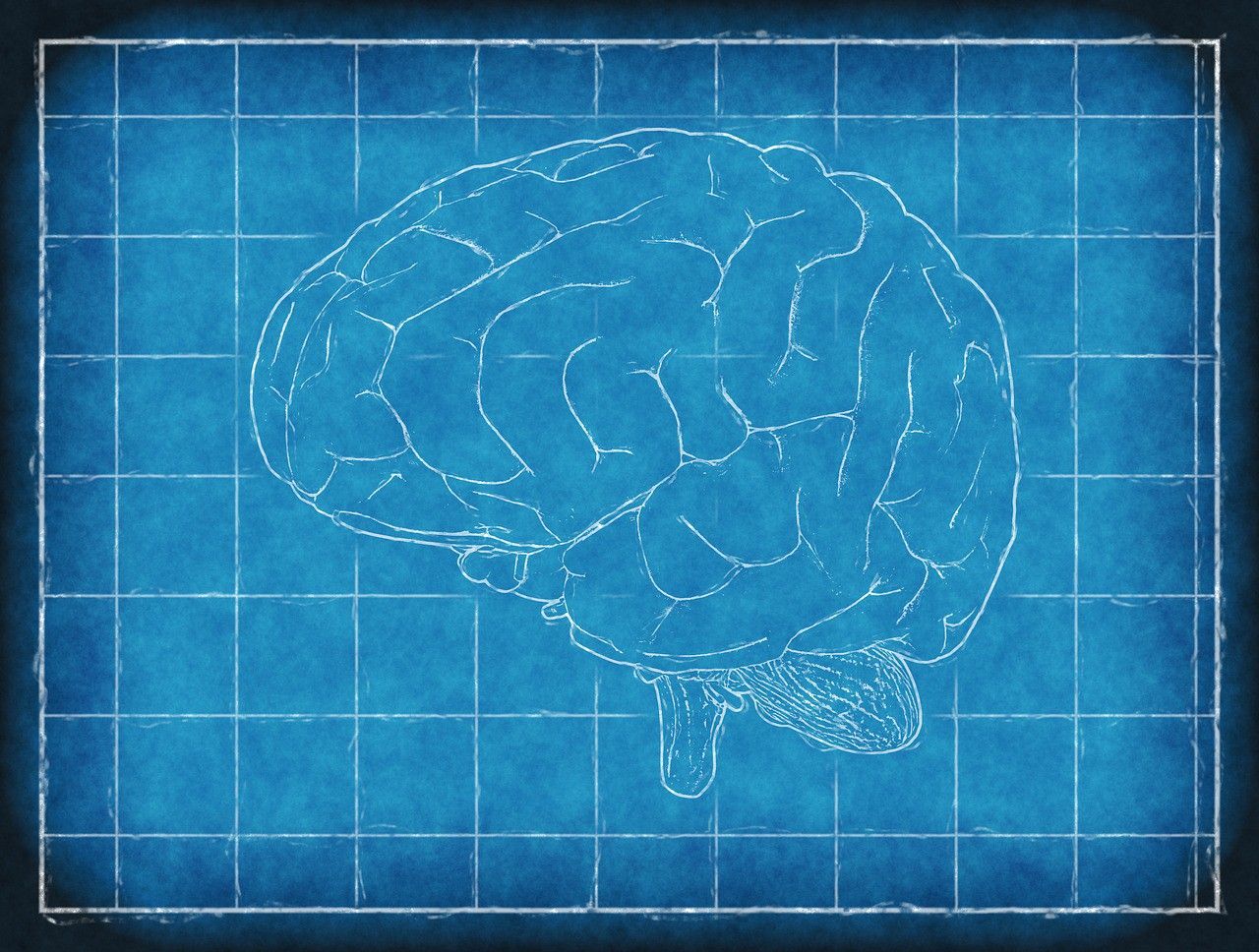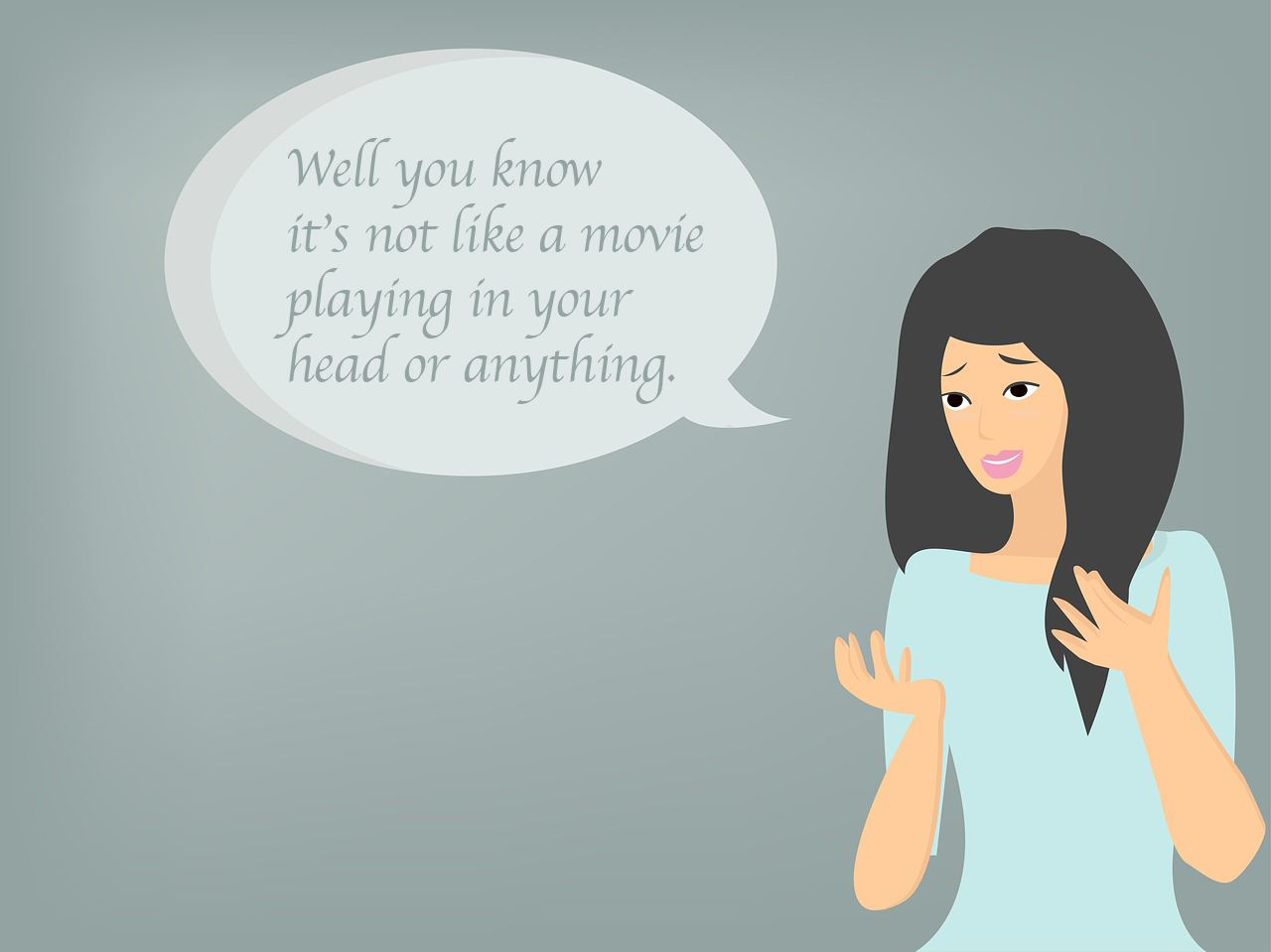I was having a conversation with my sister Katie (I forget how it started) about how she could close her eyes and picture in vivid detail a huge field with a single fruit tree in the middle and she could navigate anywhere she wanted around this mental scene. Not only that, she could modify it at will!
I marveled and prompted her with imaginary fuel. “Can you picture a wagon drawn by a horse? No, a dragon! Make it a dragon! You can see it? Really? Can you make it breathe fire? That’s amazing!”
I couldn’t get over the fact that she could actually visualize anything she wanted at will.
“What power!” I thought. “And what fun that must be!”
I knew that if I had this superpower I would undoubtedly never get anything done, but would probably busy myself all day every day creating imaginary worlds I could just enjoy in my mind.
It was that day that I realized not everyone’s mind worked the way mine did. I assumed expressions like “picture this” were figures of speech! I didn’t realize people could literally create pictures in their minds.
My curiosity was sparked and I thought surely there must be others whose minds work the way mine does. I jumped online and kicked off my investigation. I searched high and low but this was almost 20 years ago and the internet wasn’t what it is today. No matter what I searched for I came up with nothing.
Well that’s not entirely true. I did find an article by some medical professional who claimed that it would be completely impossible for someone to function without a mind’s eye.
Impossible or not, I have been a highly functioning member of society for quite some time now. But when I close my eyes, there’s no scene there to manipulate. There’s no picture. Just darkness.
What’s in a name?
Today people have started (if only barely) to come out of the woodwork with their own stories like mine. There’s an unofficial name for this “condition” that surfaced a couple years ago. I’m not a big fan of it because it sounds to me like a cross between a disease and a Disney movie… but nobody asked me. They call it aphantasia.
The BBC did a piece about it in 2015 and facebook pages and subreddits have started popping up since then. Still though, almost no one I run into has heard about this.

The truth is, it doesn’t come up. We all assume everyone else’s mind works relatively the same way ours does. After all, there’s no real way to see into someone else’s mind.
It seems to me that rather than some people having a mind’s eye and others not, it’s more like a spectrum. I happen to be on one end of the spectrum while my sister Katie is obviously on the other. Most people are likely somewhere in between.
When people like me talk about this with friends they usually get a couple different responses. Those who, like my sister, are extremely visual thinkers can’t imagine what it’s like to live without a mind’s eye. Others respond with something like this:

Regardless of where you fall on the mind’s eye spectrum, it helps to know that it exists. The more we understand each other, the better we can relate and communicate.
The downside to lacking a mind’s eye
A number of challenges come along with not having a mind’s eye. For instance, I only remember the facts about a person or situation that I commit to memory (I can’t recall and inspect an image for reference). I’m terrible with names. My sense of direction is… yeah, pretty bad.
The unexpected and significant upside
There is a very real upside to all this. I don’t really hold grudges since I can’t replay vexing arguments or circumstances over and over in my mind. Neither can I mentally play out terrible possible outcomes to situations that if I could, might paralyze me with fear.
So what now?
Ask around. Start the conversation at your next dinner party. Who knows what you might learn? It really does make for good conversation and more likely than not, you know someone who like me closes their eyes and sees nothing at all. Or maybe that person is you!


